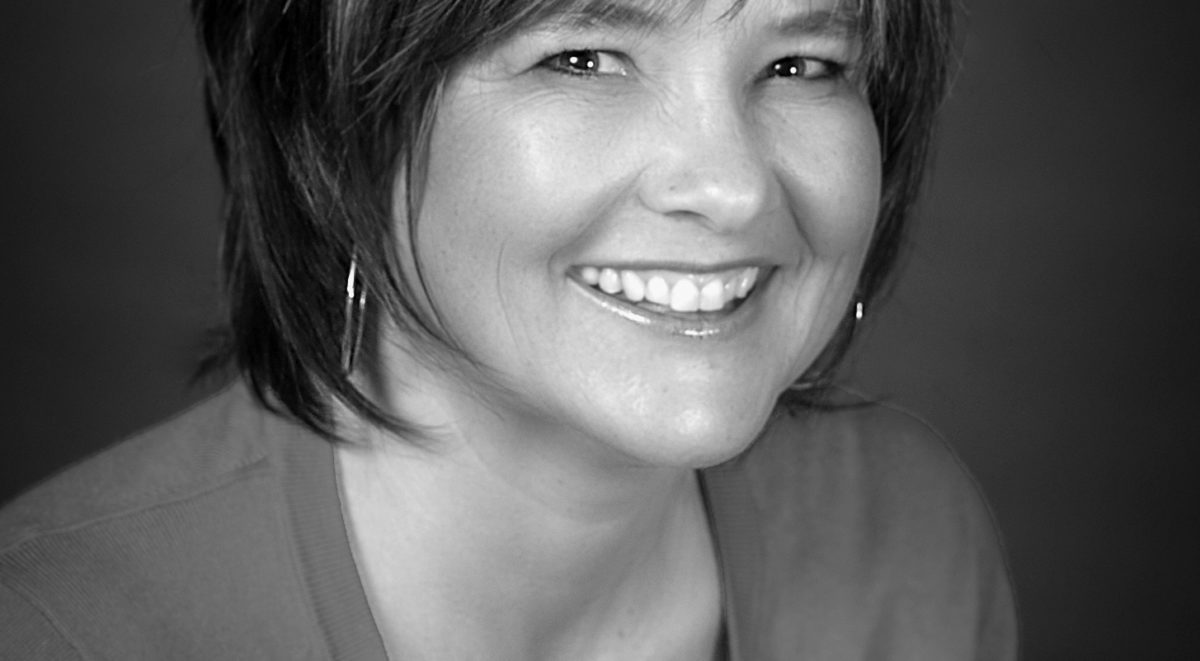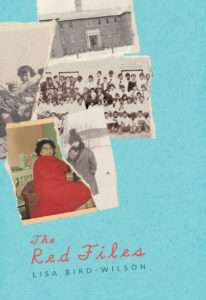
Review by Nathaniel G. Moore
Lisa Bird-Wilson is a Cree-Metis writer from Saskatchewan, whose writing has appeared in a number of literary magazines and anthologies, including Grain, Prairie Fire, The Dalhousie Review, Geist, kimiwan, cîhcêwêsin and Best Canadian Essays. She is the author of the novel Just Pretending (Coteau Books, 2013), and her debut poetry collection, The Red Files, (Nightwood Editions, 2016). Bird-Wilson is a finalist for two Saskatchewan Book Awards: the Rasmussen, Rasmussen & Charowsky Indigenous Peoples’ Writing Award and the Saskatchewan Arts Board Poetry Award. She lives in Saskatoon, SK.
From the onset you waste no time painting the portrait of your focus. “Mourning Day” imagines the plight of Aboriginal children losing their long braids—a hostile gesture of cultural denial for sure, but something seemingly unbelievable, almost mythological in nature. It may seem like an obvious question, but I’m sure readers would be interested in learning why you were drawn to this particular time period.
I started with photos that had been given to me by family members where my kohkums (grandmothers) and their siblings were identified in the pictures. I went looking in archives for more photos from the same era and found the children were not identified in any of the archival photographs—a form of silencing and treating individuals as if they are anonymous and uniform, rather than real people. I wanted to try and deconstruct that and poetry emerged as the vehicle to do so. Poetry becomes an act of resistance, of what is available to me as a writer.
At the end of “Boys’ Class Date Unknown”, which I gather is based on an old school photograph, the poet inserts herself only at the end, almost in an amalgam of celebration, declaration and protest. Can you talk about what went into creating this jarring and empathetic poem?
The title of the poem came from the title of a picture of a boys’ class. The title declares the date to be unknown but I had a sense of wanting to deconstruct that notion with a different one—that these are real, spirited little boys, and the date and experience is known to them. I was trying to resist the anonymous nature of the photographs I was looking at, trying to resist the power-move that simply overlays the photo with a casual “date unknown” as if that answers for anything. And also, when I looked at the photo I could really see the spirit of those little boys with such heartbreaking clarity. I wanted to see if I could convey that with words in a poem.
How long did you spend with those images—the actual photos. Was it something you went to each time you wrote certain stretches of The Red Files? Or were they burned in your psyche so to speak?
I spent a lot of time with the photos and they created mental impressions over time. Some photos I only ever saw once, in the national archives in Ottawa, but they stuck with me—as you say, they’re burned in my psyche—that’s a good description for what happened. There were about five years between first working with the photos and coming out with the book. A good portion of that time was spent with the photos and documents. For a long time I didn’t even know I would come out with a book. I was just working with language, working so much from a desire to honour my kohkums and moshums (grandfathers), and to convey my deep love and respect for the children that they were—them and a hundred thousand other children. Working to say something greater than “my heart is broken.”
 What have been some reader feedback or reaction to your poetry—and how do you feel about it?
What have been some reader feedback or reaction to your poetry—and how do you feel about it?
Generally the feedback has been to start conversations. I find it encouraging, first of all that audiences are so engaged with the material, and second that somehow my little offering can be a part of the reconciliation conversation. I hope in some way I’ve achieved honouring my kohkums and moshums and all that they had to go through. Theirs wasn’t an easy path.
It seems like a fresh topic, and that may seem like a gross thing to say about this First Nations issue. Do you think as writers and readers we’re only beginning to share the totality of this injustice?
When you consider that the last residential school in Canada was closed in 1996 you realize that the history is still so raw. We’re only a generation or two into the pernicious ripple effects of the residential schools—the sixties scoop, our kids in care, language loss, cultural severing. Now, I see that next generation after is coming of age in such a powerful way. There are all of these young Indigenous people going to university now and taking post graduate degrees and working really hard to change the conversations in academia, politics, education, business, and other places of deep thought and influence. It’s quite exciting. Language reclamation is huge. Cultural reclamation. This is us decolonizing. Our young people are so hungry, so driven. It’s really beautiful. It’s time. It makes me hopeful.
In many ways, it might be a better world if the tumultuous reality that inspired this book never happened. Of course, that isn’t the case, and great art arises from terrible, terrible things. Can you discuss how with The Red Files you are working at art in reconciliation?
I think all Canadians have a role in reconciliation and in the truth of things too. It’s not just for Indigenous people to do all the work, put the entire trauma out there, and work on healing. We all need to learn, question, think deeply, challenge norms, history, colonial thought, and denial. To put an end to silencing. To create space to exchange ideas. In The Red Files part of what I’m trying to do is come to terms with the discrepancy I see between a set of 2-D photos, documents, and facts, and a more nuanced and hopefully 3-D approach to the people who make up my past history and how I see the ripples of that history extending to today.
Nathaniel G. Moore is the author of Let’s Pretend We Never Met, Savage and Jettison. He lives in Half Moon Bay, BC.